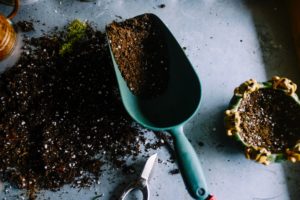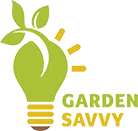For many of us, if not all, gardening provides us with a much-needed escape from our everyday lives. It allows us to be at one with nature, most often in the comfort of our own homes, in our own environments, and with our own visions. In addition, gardening itself is a nurturing task; we plant a seed, we provide it with water, warmth, nutrients, and more. We watch it grow throughout the season, and we care for it when the winter begins. With all of this in mind, it may come as a surprise that many gardeners actually do have concerns. And while they may not be mission-critical, they are certainly some important things to keep in the back of your mind!
Here are the top 4 concerns of today’s gardeners!
Always Know Your Soil
Becoming one with your soil may seem a bit too Zen, even for gardeners! But truth be told, being able to recognize what type of soil you’re working with could help to inform your gardening practice for years to come. This is especially important if you plan to grow more than just flowers. For instance, a home testing kit will tell you just how nutrient-rich your soil is, so that if you’re planning on growing your own crops of fruits and veggies, you can rest assured knowing that your soil is up to the task.

Always Be On The Lookout For Disease-Carrying Bugs
Ticks! Ticks are always one of the most prominent pests that just love to hide out in our gardens during the summer months; especially if you live near a wooded area. And let’s not forget, ticks are one of the largest carriers of Lyme Disease. Just a simple brush of your arm on one of your plants can provide the perfect platform for a tick to grab on to. While most of this is unavoidable, it is always a concern of gardeners. Simply check your arms and legs, and all exposed areas of the skin after you’ve completed your gardening session for the day. Although, we suggest you wear long sleeves and pants with high socks to avoid ticks. If you’re not sure about which disease your plants have, see our list for plant diseases.
Poisonous Plants
While most of the plants that you’ll be planting are likely non-poisonous, there are a few garden-staple plants that technically do contain toxins that could potentially be harmful to humans and pets if ingested. For example, poinsettias and hydrangeas can be especially poisonous if ingested. For gardeners who want to use these plants in their garden, they are always sure to be cognizant of their children and pets!
Dangerous Chemicals
The United States Environmental Protection Agency maintains a list of nearly 200 different pesticides that are supposedly safe for lawn use and garden use. However, can you really be sure? Gardeners are always concerned about the types of chemicals that are permitted to be used as pesticides on their plants and lawns, and for good reason. Always be sure to check to see what types of chemicals are in your pesticides, and do your due diligence to ensure that they pose no threat to you, your family, your pets, or your garden!
Contact Author
 info@gardensavvy.com
info@gardensavvy.com Recent Posts
- Smart Gardening: How Technology Is Revolutionizing Horticulture
- Understanding Gardening Zones: What You Need to Know
- The Right Tools For Your Gardening And Landscaping Needs
- Maximizing Your Harvest: Square Foot Gardening Chart for Beginners
- Holiday Garden Scents: Plants for Natural Aromatherapy in Your Home









